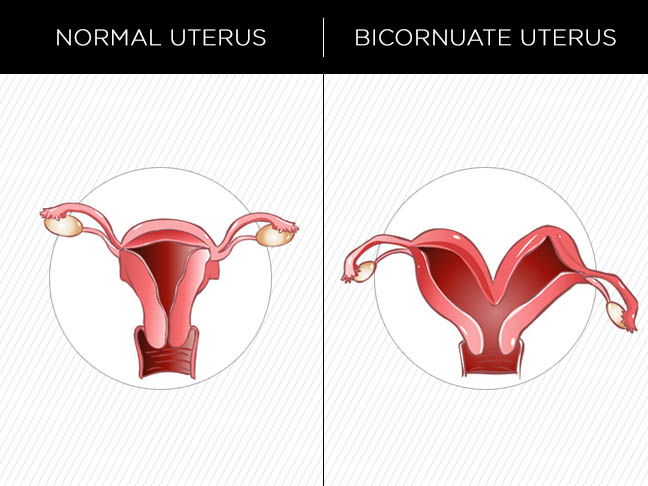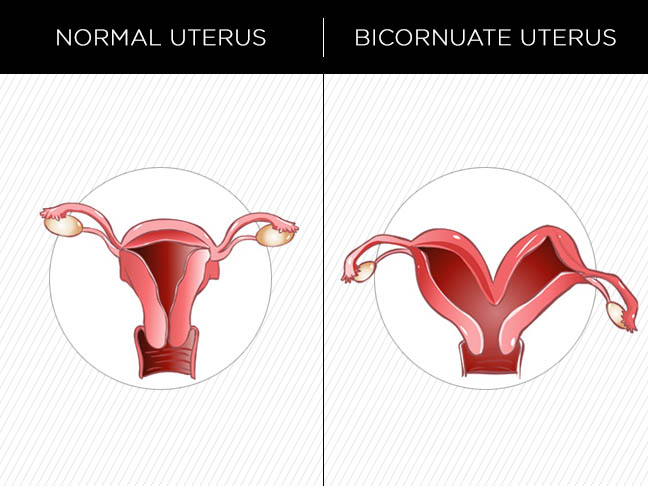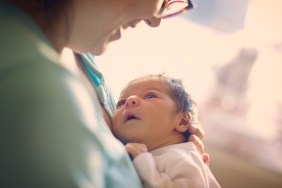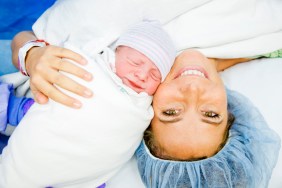
What is a bicornuate uterus?
A bicornuate uterus is a heart shaped uterus with two horns. A typical uterus, on the other hand, is pear shaped. “A bicornuate uterus is a congenital abnormality of the uterus, which means you’re born with it,” says Anna Barbieri, MD, an ob-gyn in private practice in New York. The bicornuate uterus looks the way it does due to a partial split that creates two chambers (as opposed to the flat top of the typical uterus). Normally, the split in the uterus retracts during fetal development, but with a bicornuate uterus it does not, resulting in the heart-like shape.
How is a bicornuate uterus diagnosed?
“First, we diagnose by ultrasound and then if you feel like you need a more accurate diagnosis you can get an MRI [if you’re not pregnant],” explains Rachel Kassenoff, MD, an ob-gyn at Mount Sinai Hospital in New York City. The bicornuate uterus is often diagnosed when you’re pregnant, if the baby is breach or at the time of delivery. “When you’re performing the C-Section and feeling the uterus, you can feel it,” she adds. Some women are diagnosed with it when experiencing fertility problems, although a bicornuate uterus is not generally the cause of infertility; it more commonly affects pregnancy.
Is a bicornuate uterus dangerous?
“It is not dangerous but it can affect pregnancy more than fertility,” says Dr. Barbieri. “The bicornuate uterus can increase your risk for miscarriage, preterm labor, abnormal/poor growth of the baby, and increased risk of malpresentation (when the baby is breech, for example), therefore increasing the risk of C-Section.”
Are doctors able to minimize complications of bicornuate uterus during pregnancy?
Yes. If a woman with a bicornuate uterus has a breech baby, doctors can attempt to turn the baby to help prevent a C-Section. Additionally, acupuncture can be useful, as well as a cerclage (or cervical stitch), which may be done if the cervix is too short to help prevent preterm labor. However, Dr. Barbieri adds that a cerclage is not typically done as a preventative measure in the first pregnancy. “If the first pregnancy ended with a preterm delivery, and especially with a second trimester miscarriage, a cerclage can be performed to hopefully prevent the recurrence.”
All in all, having a bicornuate uterus is nothing to worry about. It is not something you will need to seek out a specialist to advise you on, and Dr. Kassenoff says that your regular ob-gyn will be able to handle it just fine.
More for Moms:
- Quick & Easy Wellness Tricks That I Swear By
- Do Natural Hand Sanitizers Really Help Prevent Colds & Flu?
- Endometriosis: What it Feels Like to Suffer From it
Illustration: Getty








